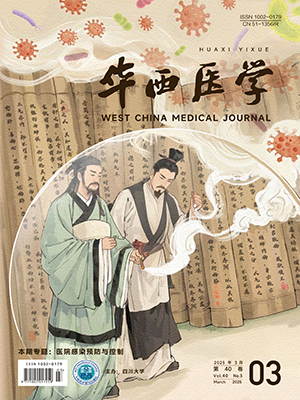| 1. |
Boockvar K, Vladeck BC. Improving the quality of transitional care for persons with complex care needs[J]. J Am Geriatr Soc, 2004, 52(5):855-856.
|
| 2. |
夏穗生. 当前肝移植外科应注意的问题[J]. 中华肝胆外科杂志, 2003, 9(5):262-264.
|
| 3. |
Bravata D, Olkin I, Barnato A, et al. Health-related quality of life after liver transplantation:a meta-analysis[J]. Liver Transpl Surg, 1999, 5(4):318-331.
|
| 4. |
Chow SKY, Wang FKY, Chan T, et al. Community nursing services for post discharge chronicallyill patients[J]. J Clin Nurs, 2008, 17(7b):260-271.
|
| 5. |
Hoffmann H, Christoph K. Fast-Track-Chirurgie-Voraussetzungen und Herausforderungen in derNachbehandlung[J]. Therapeutische Umschau, 2012, 69(1):9-13.
|
| 6. |
付伟, 李萍, 钟银燕. 延续性护理研究综述[J]. 中国实用杂志, 2010, 26(4):27-30.
|
| 7. |
Coleman EA, Smith JD, Frank JC, et al. Preparing patients and caregivers to participate in care delivered across settings:the care transitions intervention[J]. J Am Geriatr Soc, 2004, 52(11):1817-1825.
|
| 8. |
Colenmn EA, Parry C, ChalmeIs S, et al. The care transitions intervention results of randomized controlled trial[J]. Arch intern Med, 2006, 166(17):1822-1828.
|
| 9. |
颜君, 尤黎明, 刘可. 香港老年社区护理的特点与启迪[J]. 护理学杂志:综合版, 2005, 20(21):63-65.
|
| 10. |
王少玲, 黄金月, 周家仪. 建立慢性阻塞性肺疾病延续护理的循证实践[J]. 中华护理杂志, 2009, 44(5):431-434.
|
| 11. |
杨巧红, 翟翠球, 李东娜, 等. 出院后延续护理对重型颅脑损伤病人综合功能的影响[J]. 护理研究, 2010, 24(6):1635-1637.
|
| 12. |
王少玲, 符始艳, 周家仪, 等. 慢性阻塞性肺疾病患者的延续护 理[J]. 中华护理杂志, 2011, 46(8):758-760.
|
| 13. |
龚艳, 徐建梅, 肖清英, 等. QQ群在出院后肾脏疾病患者延续护理中的应用[J]. 实用临床医学, 2013, 14(12):75-78.
|
| 14. |
Naylor M, Keating SA. Transitional care[J]. J Soc Work Educ, 2008, 44(3):65-75.
|
| 15. |
van Walraven C, Oake N, Jennings A, et al. The association between continuity of care and outcomes:a systematic and critical review[J]. J Evaluat Clin Pract, 2010, 16(5):947-956.
|




